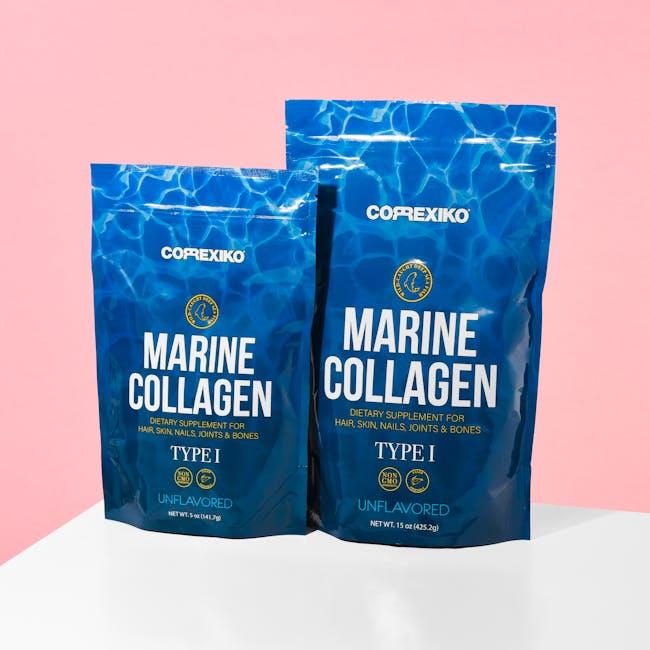Building muscle is a goal shared by many, but achieving it requires more than just lifting weights and spending hours in the gym. Nutrition plays a pivotal role in nutrition-diet/how-to-build-a-diet-that-supports-weight-training/” title=”How to Build a Diet That Supports Weight Training”>muscle growth and recovery, yet it’s an area where even seasoned fitness enthusiasts can stumble. In this article, we will dissect the top nutritional mistakes that could be sabotaging your muscle-building efforts. With a confident stride, we’ll guide you through common pitfalls and empower you with actionable insights to optimize your diet for maximum gains. Whether you’re a beginner or an experienced lifter, understanding these critical missteps will help you fuel your body effectively and transform your hard work into tangible results. Let’s embark on this journey to ensure that your nutrition supports, rather than hinders, your path to muscle-building success.
Neglecting Protein Intake and Its Impact on Muscle Growth
In the quest for muscle growth, one of the most critical yet often overlooked components is adequate protein intake. This macronutrient is the cornerstone of muscle repair and growth, serving as the building block for new muscle tissue. Without sufficient protein, your body struggles to repair muscle fibers torn during workouts, stalling progress and potentially leading to muscle loss over time. To avoid this pitfall, ensure your diet is rich in high-quality protein sources.
- Lean meats such as chicken, turkey, and beef.
- Fish like salmon and tuna, which also offer healthy fats.
- Plant-based options such as lentils, chickpeas, and quinoa for those following vegetarian or vegan diets.
- Dairy products like Greek yogurt and cottage cheese, providing a convenient source of protein and calcium.
- Protein supplements can be beneficial for those struggling to meet their protein needs through food alone.
It’s important to distribute protein intake evenly across meals throughout the day to maximize muscle protein synthesis. Ignoring this nutritional necessity can severely hinder your ability to achieve the muscle gains you’re working towards. By prioritizing protein, you’re laying the groundwork for a successful muscle-building journey.

Understanding the Role of Carbohydrates in Muscle Building
When it comes to muscle building, carbohydrates often get a bad rap, but understanding their essential role can make a significant difference in your fitness journey. Carbohydrates are not just an energy source; they are the primary fuel for your muscles during workouts. Without adequate carbs, your body may struggle to perform at its best, leading to decreased endurance and muscle fatigue. This is why it’s crucial to integrate the right amount of carbohydrates into your diet for optimal performance and recovery.
- Energy Supply: Carbs replenish glycogen stores in muscles, which are vital for high-intensity training.
- Protein Sparing: With sufficient carbohydrates, your body uses less protein for energy, allowing it to focus on muscle repair and growth.
- Insulin Response: Consuming carbs post-workout can enhance insulin response, promoting nutrient uptake and recovery.
To maximize muscle gains, ensure you are not skimping on carbs, especially around your workout times. Opt for complex carbohydrates like whole grains, fruits, and vegetables to maintain sustained energy levels and support your muscle-building goals.
The Dangers of Overlooking Hydration During Workouts
When it comes to muscle building, maintaining proper hydration is often underestimated. Yet, its role is critical for both performance and recovery. Water is essential for nutrient transport and muscle function, helping to prevent fatigue and muscle cramps during intense workouts. Without adequate hydration, you risk compromising your energy levels and recovery, making it harder to achieve your fitness goals.
- Decreased Performance: Even slight dehydration can lead to a noticeable drop in strength and endurance.
- Impaired Recovery: Insufficient water intake can slow down muscle repair, delaying progress.
- Increased Risk of Injury: Muscles and joints need proper lubrication, and dehydration can lead to strains and sprains.
Ensuring you drink enough fluids before, during, and after your workouts is a simple yet powerful strategy to maximize your muscle-building efforts. Aim to include electrolytes in your hydration plan, especially if you’re engaging in prolonged or high-intensity sessions.
Avoiding Common Micronutrient Deficiencies for Optimal Performance
While macronutrients often steal the spotlight in muscle-building conversations, ignoring the critical role of micronutrients can sabotage your performance and gains. Micronutrient deficiencies can lead to fatigue, weakened immune function, and reduced muscle recovery. To ensure your body is operating at its peak, be mindful of the following common pitfalls:
- Overlooking Iron: Essential for oxygen transport in the blood, a lack of iron can cause fatigue and hinder your training intensity. Include iron-rich foods like spinach, red meat, and legumes in your diet.
- Neglecting Vitamin D: Vital for bone health and muscle function, inadequate vitamin D levels can impair strength and increase injury risk. Spend time in the sun and consume fortified foods or supplements if necessary.
- Skipping Magnesium: This mineral supports muscle relaxation and energy production. Without it, you might experience cramps or reduced endurance. Incorporate nuts, seeds, and leafy greens to meet your needs.
- Ignoring Zinc: Critical for protein synthesis and immune function, zinc deficiencies can slow muscle growth. Foods like shellfish, meat, and dairy are excellent sources.
By addressing these often-overlooked nutrients, you’ll fortify your body against common setbacks and pave the way for optimal muscle-building performance.




